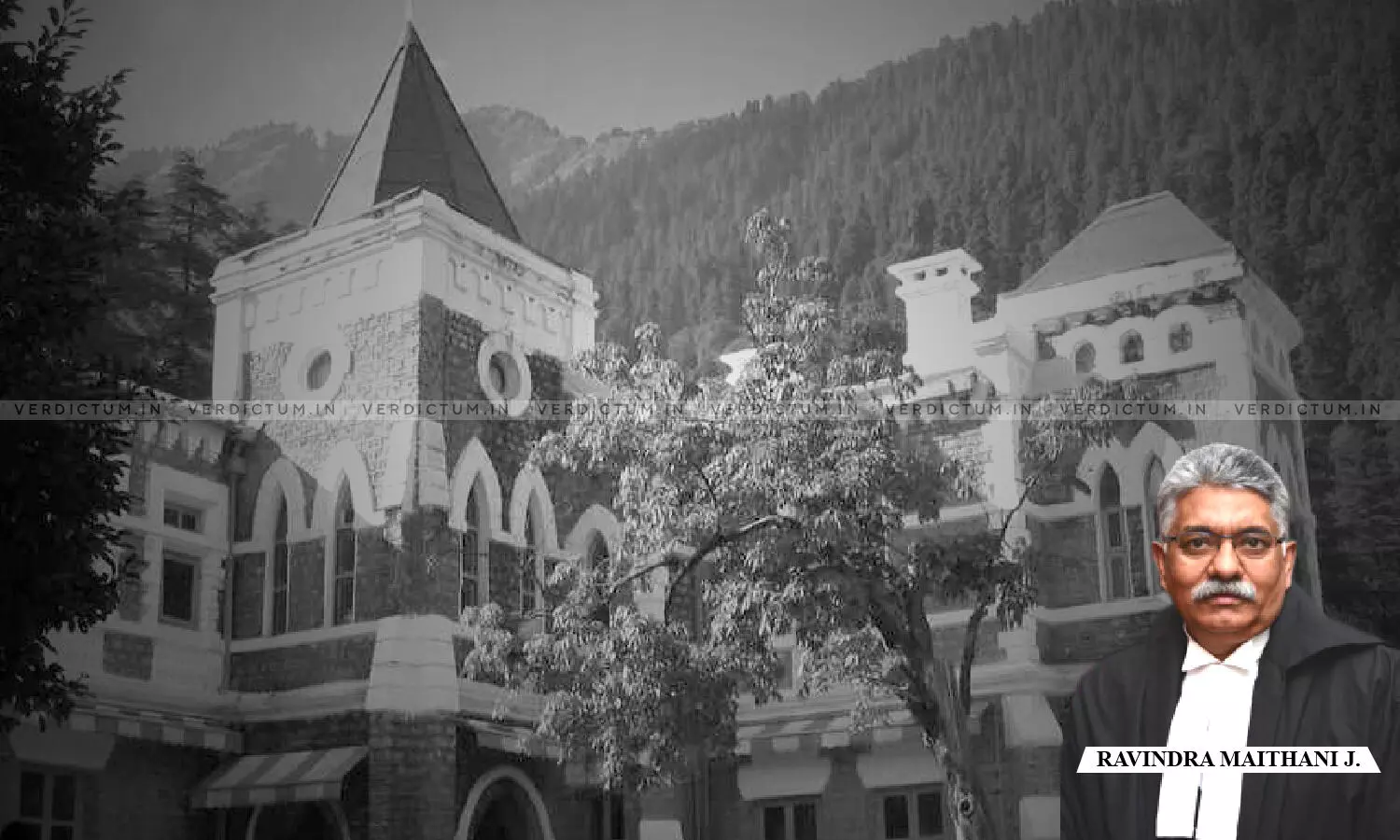
Even If Child Is Transferred For Trial As An Adult, His Bail Application Shall Be Entertained U/S 12 Juvenile Justice Act: Uttarakhand HC
 |
|The Uttarakhand High Court reiterated that even if a child is transferred for trial as an adult before the Children’s Court, his bail application shall be entertained under Section 12 of Juvenile Justice (Care and Protection of Children) Act, 2015 (JJ Act).
The Court was dealing with a bail application filed by a child who was in judicial custody for the offence under Sections 376(3) and 506 of the Indian Penal Code (IPC) and Sections 5(j)(ii) and 6 of the Protection of Children from Sexual Offences Act, 2012 (POCSO Act).
A Single Bench of Justice Ravindra Maithani said, “Even if a CIL is transferred for trial as an adult under Section 18(3) of the Act, his bail application shall be entertained under Section 12 of the Act. This view has been consistently discussed and followed in various judgments of various High Courts. In the case of Ccl A Vs State Nct of Delhi, (2020) 10 DEL CK 0155, the Hon’ble Delhi High Court has categorically held that, “even when a child is sent-up for trial as an adult before a Children's Court, the child does not become an adult or 'major', but is only to be treated differently considering the heinous nature of the offence alleged and consequent need for a stricter treatment of the offender, though still as a juvenile in conflict with law.”
Advocate Dinesh Chandra Joshi appeared for the applicant while AGA Manisha Rana Singh appeared for the respondent.
In this case, the applicant sought his release on bail. As per the FIR registered against him, the informant along with her family was staying in a rented accommodation and the applicant was the neighbour. He used to allegedly molest the niece of the informant. The family members of the applicant were told about it, but nothing changed. When it was detected that the victim was pregnant for six months, she revealed that it was the applicant who established physical relations with her 4-5 times, and threatened her to life in case she revealed about it to anyone.
The victim was 15 years old and the applicant was a Child in Conflict with Law (CIL). He moved an application for bail before the Juvenile Justice Board (JJB) which was rejected. It so happened that the JJB conducted preliminary assessment under Section 15 of JJ Act and passed an order that the CIL should be tried as an adult under Section 18(3) of the Act. Thereafter, another bail application was filed by the CIL, where the trial was transferred in the court of Special Judge (POCSO)/Special Judge/Additional District and Sessions Judge. The bail application of the CIL was rejected and hence, he approached the High Court.
The High Court in view of the facts and circumstances of the case observed, “The Hon’ble Delhi High Court further observed that, “even though a child may be sent-up for trial before the Children's Court as an adult, there is no provision in the JJ Act that requires any departure from considering the matter of release of such child on bail under section 12.” Similar views have been expressed in the cases of Siddalinga SN Vs. State of Karnataka MANU/KA/0774/2023, and Shubham Alias Bablu Milind Vs. State of Maharashtra, MANU/MHOR/142201/2022.”
The Court enunciated that the bail to a CIL may be denied if there appear reasonable grounds for believing that his release is likely to bring him into association with any known criminal or expose him to any moral, physical or psychological danger, or his release would defeat the ends of justice.
“The governing principle of the Act is given under Section 3 of the Act that principle of best interest is one of the principles, which provides that all decisions regarding the child shall be based on the primary consideration that they are in the best interest of the child and to help the child to develop full potential. In fact, as per principle (v), the primary responsibility of care, nurture and protection of the child shall be that of the biological family or adoptive or foster parents, as the case may be”, it remarked.
The Court took note of the fact that both the CIL and the victim were neighbours and the victim was already examined at trial and after 6 months of pregnancy, the incident could be revealed. It further noted that as per the FIR, the relationship was established 4-5 times and both were young i.e., the CIL being 17 years of age, whereas, the victim being 15 years of age.
“Various questions would find deliberation during trial, which includes whether the relationship were consensual? Whether the parties were in relationship? If for the first time the offence was done, why the victim did not raise any alarm? Where the incident took place? Etc.”, it added.
The Court said that the Social Investigation Report does not reveal anything adverse against the CIL as he was a student at the relevant time studying in class XII and his conduct was good with everyone.
“Having considered, this Court is of the view that it is a case fit for bail and the CIL deserves to be enlarged on bail. … Let the CIL be given in the custody of his father, subject to production of two reliable sureties. The father of the CIL shall also give an undertaking that he shall take care of the CIL and shall not allow him to contact any of the witnesses or their family members. The father of the CIL shall also undertake that he shall also not contact either the witnesses or any of any of their family members”, it directed.
Accordingly, the High Court allowed the bail application.
Cause Title- X v. State of Uttarakhand